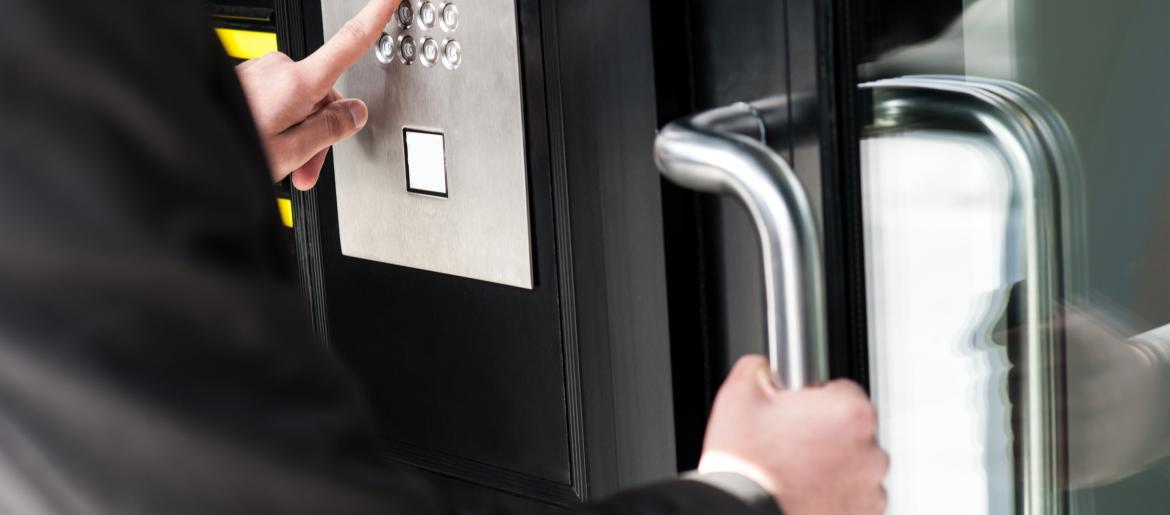Tailgating: An Overview
Tailgating is a security breach that involves exploiting human cognitive biases. The perpetrators rely on common courtesy and social norms to trick individuals into holding doors open—granting them unauthorized access. Learn more about tailgating in this article.
How It Works
Tailgating occurs when an unauthorized individual gains access to a restricted area by closely following an authorized person through a secured entry point, exploiting their legitimate access. In this scenario, the unauthorized person takes advantage of the trust or distraction of the authorized person to gain entry without proper identification or credentials.
The process starts when the authorized person approaches the access point, such as a door with keycard access or a security checkpoint. The unauthorized individual waits for the right moment to act. They may blend in with a crowd or appear inconspicuous to avoid drawing suspicion.
As the authorized person presents their credentials to the security system, the tailgater quickly slips in behind them, often within the closing timeframe of the door or barrier. The security system recognizes the initial legitimate entry and grants access to both individuals without raising the alarm, allowing them to penetrate the restricted area.
Tailgating is successful because it exploits human behavior and people's trust in authorized personnel. This breach can happen in various environments, including office buildings, data centers, and sensitive facilities.
How It Affects Businesses
Tailgating undermines the effectiveness of access control systems. These systems are designed to grant entry only to individuals with proper credentials. This creates an exploitable gap in the security infrastructure, making it easier for malicious actors to breach sensitive areas.
Secondly, tailgating compromises the confidentiality of information and assets. Restricted areas often contain sensitive data, trade secrets, or valuable resources. Allowing unauthorized individuals into these spaces opens the door to potential theft, espionage, or sabotage, posing a grave threat to the organization's competitiveness and success.
Furthermore, this breach erodes trust and undermines the safety culture within an organization. Employees may feel less secure in their workplace, and compliance with security protocols may decrease if tailgating incidents are not appropriately addressed. This can create a ripple effect, weakening the overall security posture.
Lastly, tailgating can also lead to legal and regulatory consequences. Organizations handling sensitive information, especially in healthcare, finance, or defense industries, may be subject to severe penalties and legal liabilities if they fail to maintain robust physical security measures.
How to Prevent Tailgating
A combination of awareness, technology, and clear policies can prevent tailgating.
Establishing Clear Access Control Policies
Limiting access to only essential personnel ensures that only individuals with a legitimate need to be in the area can enter. Communicate these policies to all employees and visitors to raise awareness about preventing unauthorized entry.
Implementing Physical Barriers
Entry points should be equipped with turnstiles, access gates, or security doors that require individual authentication. Employees should be issued with unique access cards, key fobs, or biometric identifiers, ensuring that each person can only gain entry using their credentials.
Regular employee training and awareness programs are essential in preventing tailgating. Staff should be educated about the dangers of unauthorized access and the potential consequences of allowing others to piggyback. Employees should be encouraged to report suspicious activity and instructed not to hold doors open for others without proper credentials.
Monitoring and Surveillance
Cameras at entry points can record and alert security personnel about potential security breaches in real time. Visible surveillance cameras can act as a deterrent and discourage individuals from attempting to piggyback.
Visitor Management
Establish a robust visitor management system that requires all visitors to sign in and receive temporary access credentials. Visitors should always be escorted while on the premises, ensuring they do not attempt tailgating.
DFW Security, an independent local security company based in Fort Worth, Texas, has served the Dallas Fort Worth Metroplex for over 30 years. We offer quality, affordable security solutions, including employee and visitor access control, for a simple and streamlined solution.










